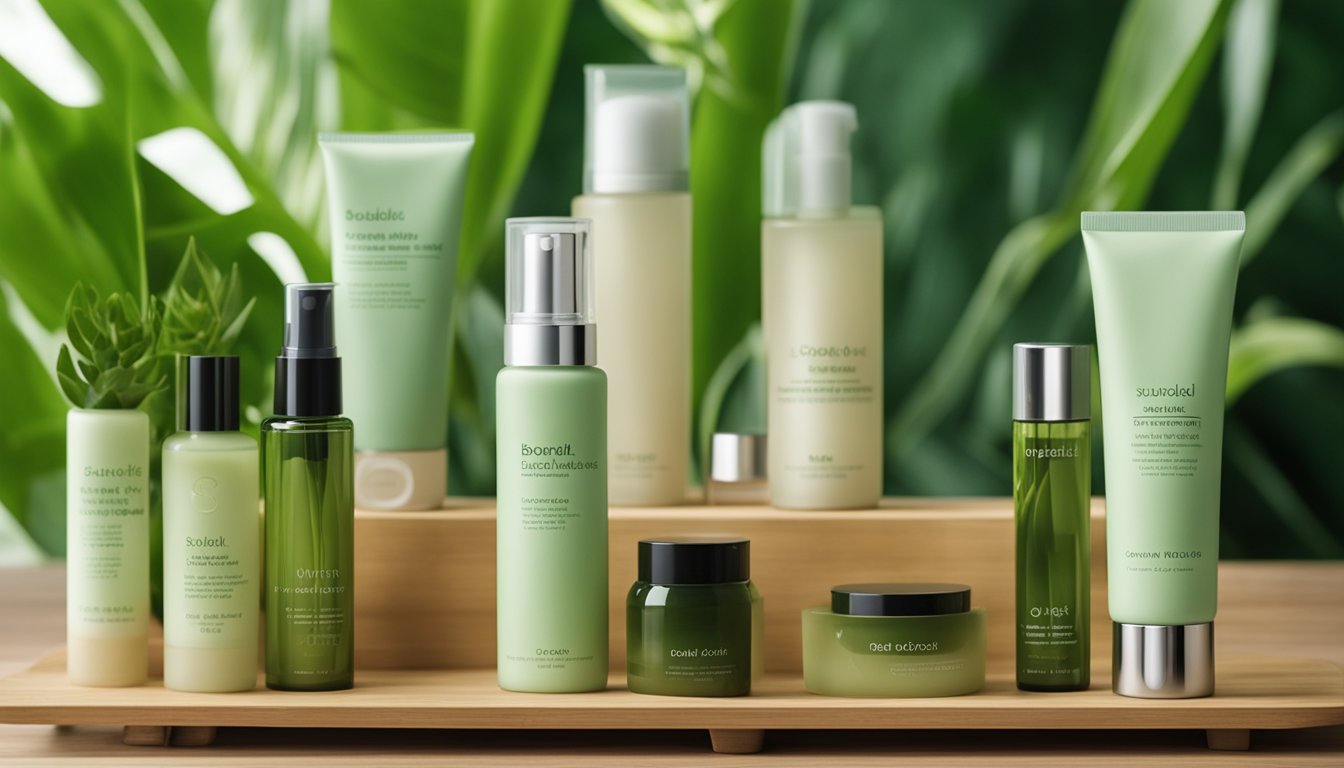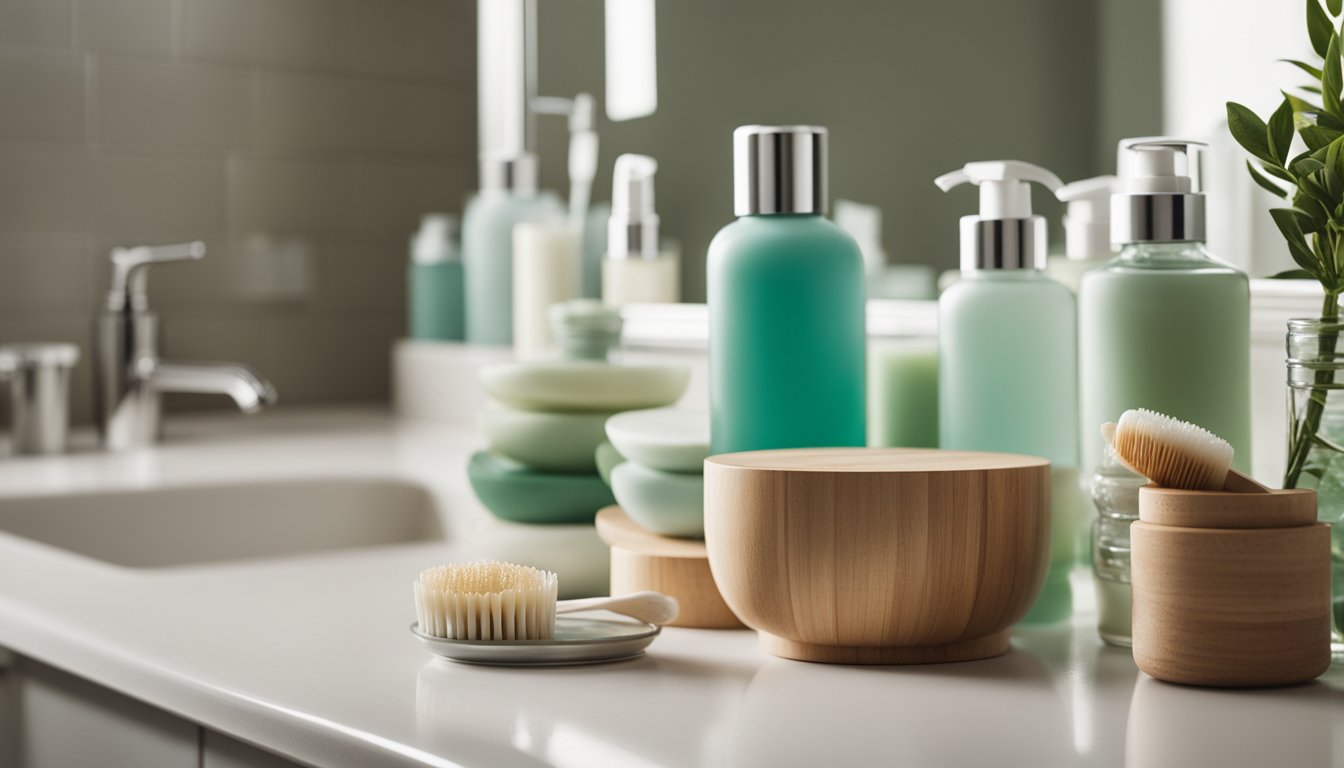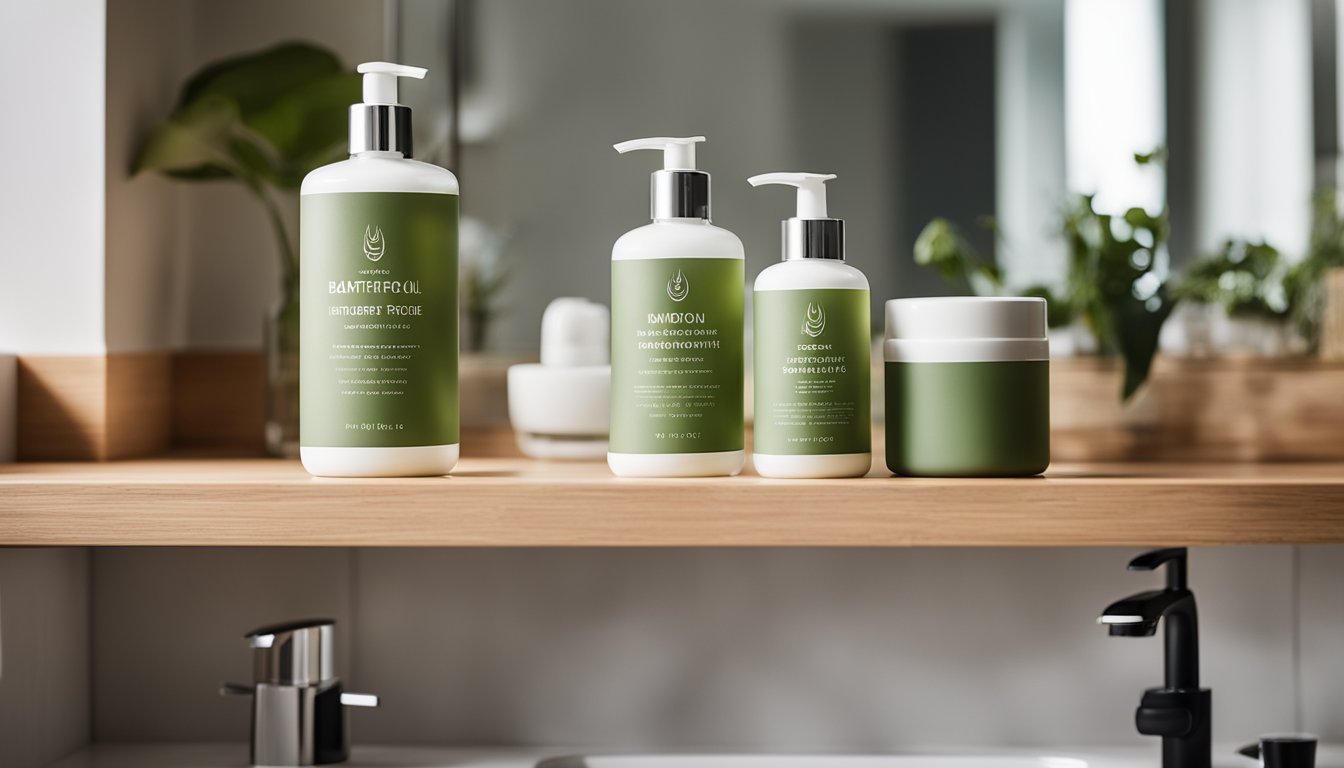Late updated: 21 Jan 2025 14:01
Written by: Sarah Hollister
How To Create A Zero Waste Beauty Routine: Steps for an Eco-Friendly Transformation
In a world increasingly conscious of its environmental footprint, creating a zero-waste beauty routine is more than just a trend—it's a commitment to a sustainable lifestyle. As we rethink our habits, it's essential to embrace practical changes that reduce waste without compromising on quality or effectiveness. By adopting a zero-waste beauty philosophy, we not only minimise environmental impact but also foster a mindful approach to personal care.

Our beauty routines aren't just about enhancing appearance; they can also reflect our values. This shift starts with selecting products that come in minimal or recyclable packaging and prioritising natural ingredients that are kind to us and the planet. Together, we can pave the way for a more sustainable future through conscious beauty choices.
Key Takeaways
- Zero-waste beauty reduces environmental impact
- Use minimal or recyclable packaging
- Mindful choices enhance sustainability
Establishing a Zero-Waste Beauty Philosophy
To develop a zero-waste beauty routine, we must focus on eco-conscious choices that support our environment. Emphasising natural ingredients and recognising the beauty industry's environmental impact are essential.
Understanding Zero-Waste Beauty
Zero-waste beauty involves making intentional choices to minimise waste. This approach emphasises reducing the reliance on single-use plastics and opting for recyclable or reusable packaging. A commitment to eco-conscious choices can drive us to select products that align with sustainable practices.
Choosing multi-use products and supporting brands that prioritise sustainability can significantly impact the beauty industry's footprint. It’s about more than just the products we use; it involves a holistic approach that integrates our values into our daily beauty rituals. By considering the full lifecycle of a product, from packaging to disposal, we can contribute to a cleaner planet.
The Role of Natural Ingredients
Natural ingredients play a crucial role in a zero-waste beauty philosophy. By prioritising botanical formulations, we reduce the demand for synthetics that often require more resources and energy to produce. Many natural products come with minimal packaging, further supporting our eco-friendly goals.
When we incorporate ingredients like oils, clays, and plant-based extracts, we support not only our skin's health but also the environmental well-being. Brands that focus on ethically sourced ingredients often offer transparency about their processes and work to ensure their practices don’t harm the ecosystem. Choosing natural options reinforces our commitment to gentle, sustainable beauty.
Impact of the Beauty Industry on the Environment
The beauty industry, unfortunately, contributes significantly to environmental issues such as excessive plastic waste and pollution. Many beauty products involve complex supply chains that add to carbon footprints and resource depletion. As consumers, we can influence change by opting for products that utilise sustainable packaging and production methods.
Being aware of a brand's environmental impact allows us to make informed decisions that align with our ethical beauty values. Supporting companies that invest in clean energy and biodegradable materials can lead to substantial environmental benefits. The cumulative effect of our choices has the potential to drive industry-wide shifts towards greater sustainability, reducing the sector's environmental footprint.
Practical Steps for a Zero-Waste Beauty Routine

By adopting a zero-waste beauty routine, we can contribute significantly to reducing environmental impact. Let's explore how selecting the right products, utilising DIY alternatives, and making mindful choices can minimise waste in our routines.
Choosing the Right Products
Selecting the right items is crucial in forming a zero-waste beauty routine. We should prioritise products with minimal or compostable packaging, such as solid shampoo bars and soap bars. These options typically feature biodegradable materials that lessen plastic pollution.
Look for brands offering refillable containers, enabling us to reuse packaging, and shop for multi-purpose products to streamline our skincare routine and reduce consumption. Companies like Elate Cosmetics provide refillable makeup options, which are effective in cutting down waste.
DIY Beauty Recipes and Natural Alternatives
Creating our own beauty products at home can be rewarding and eco-friendly. DIY beauty recipes often use natural and readily available ingredients, decreasing reliance on single-use products laden with harmful chemicals. For instance, a simple face mask can be made using plain yoghurt, honey, and oats.
Incorporate natural exfoliants like sugar or coffee grounds as scrubs. These alternatives are not only chemical-free but also help in reducing packaging waste. Making our own moisturisers or scrub bars can provide an effective, personalised routine without toxic ingredients.
Minimising Waste Through Conscious Choices
Making conscious choices involves embracing products that support sustainability and actively seeking out environmentally friendly alternatives. Reusable makeup removers and cloths are excellent for replacing single-use wipes.
Choose to reduce plastic by opting for products packed in minimal packaging and made from eco-friendly materials. Avoid single-use items by integrating refillable options in our beauty routine. Solid products like shampoo bars help limit waste substantially.
Simple changes, such as selecting cleaner beauty products known for omitting harmful ingredients, can make a significant difference. By focusing on clean beauty and sustainable practices, we enhance our personal care while promoting a healthier planet.
Frequently Asked Questions

Creating a zero-waste beauty routine involves careful selection of ingredients and packaging, as well as conscious daily practices. By prioritising natural ingredients and eco-friendly packaging, we can reduce waste significantly.
What are the initial steps to establish a zero waste skincare regimen?
To begin, we should use up existing products before switching to zero-waste alternatives. It’s essential to assess our routine, identify products with minimal waste, and replace them with sustainable options. Investing in products with refillable or recyclable packaging also makes a significant impact.
Which natural ingredients can I use to formulate a zero waste beauty routine?
Many everyday ingredients suit a zero-waste lifestyle. We can utilise coconut oil, shea butter, and aloe vera, which are versatile and environmentally friendly. These natural options often serve as effective components in a range of beauty products, such as cleansers and moisturisers.
In what ways can I implement a zero waste approach in my daily makeup application?
We can achieve this by choosing products from brands committed to sustainable practices, such as those offering refillable makeup containers. A focus on multi-use products reduces the number of items required and thus minimises packaging waste. Proper disposal of waste according to recycling guidelines further supports these efforts.
Can you recommend any environmentally-friendly packaging options for homemade beauty products?
Consider glass jars and bottles, which are not only reusable but also easy to clean. Recyclable aluminium tins provide a lightweight option for balms and creams. Biodegradable cardboard containers are increasingly available and are suitable for products like lip balms and deodorants.
How can I effectively manage waste from beauty products without compromising skincare quality?
Opt for products with simple, effective ingredients. This reduces the need for multiple products in our skincare regime. Implementing a buy-as-you-need philosophy helps avoid waste from expired items. We should also focus on batch sizes that match our usage levels to further minimise waste.
What alternatives exist for commonly used beauty items to adhere to a zero waste lifestyle?
Switching to solid shampoo and conditioner bars reduces plastic waste. Reusable cotton pads or cloths stand as alternatives to disposable wipes. Additionally, bamboo toothbrushes and metal razors present sustainable swaps for their plastic counterparts. Incorporating these changes helps maintain effective beauty care while reducing environmental impact.
